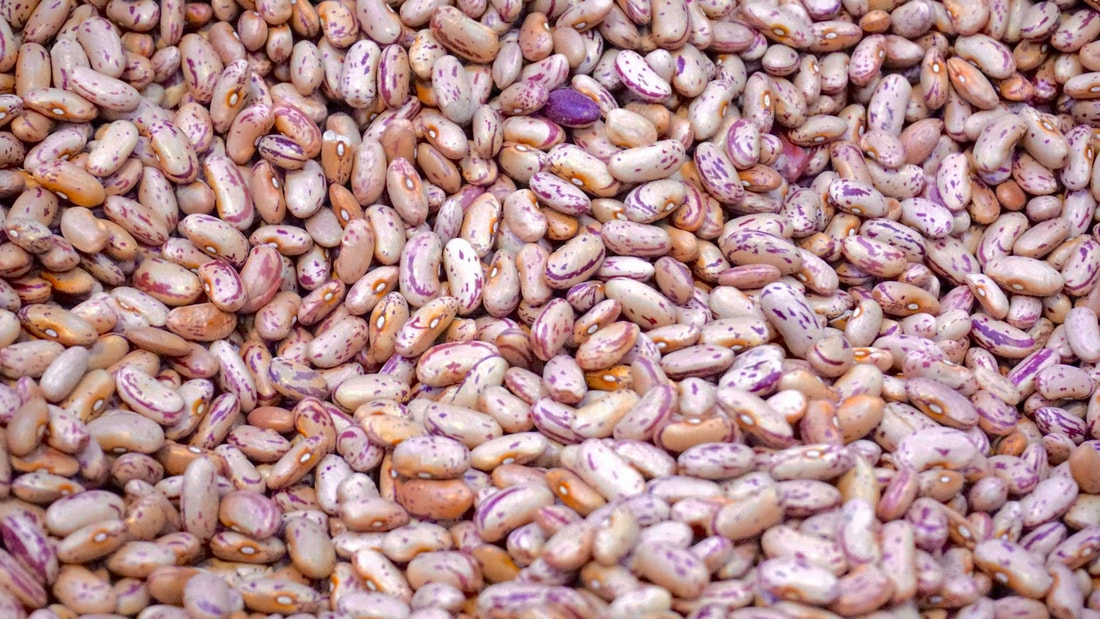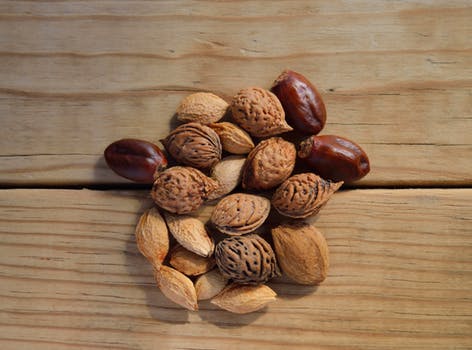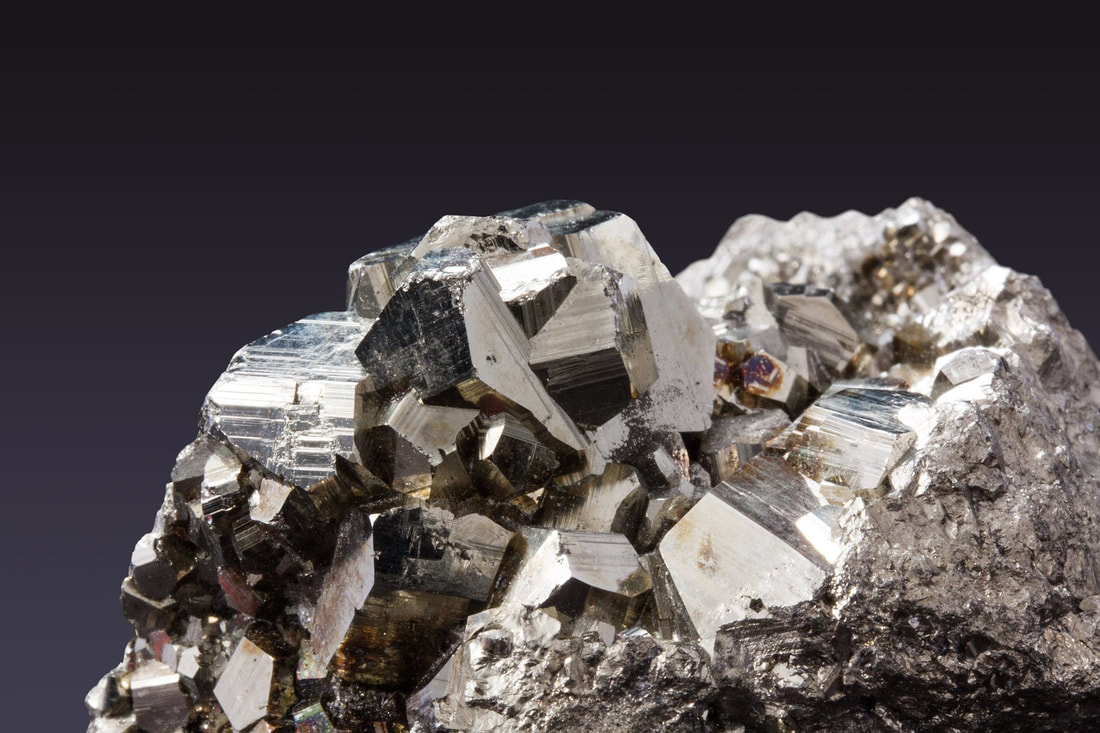|
Immune support plan
As we are surrounded by uncertainty, our minds tend to create stories as we try to find answers and gain control of the situation we are facing. Now there are many things that we do not have control over, one thing we do is our health and how we treat our bodies. What we chose to put into our bodies can nourish us and protect us by boosting our immune system so our bodies remain strong and healthy. There are also foods that you can remove from your body that cause inflammation and lead to dis-ease. When we nourish our bodies, it brings the body back to homeostasis. Homeostasis is the state in which the body is in balance and can heal itself. Here are some recommendations on how to nourish our bodies, support the immune system and bring our bodies back to health. Diet recommendations
Vitamins/minerals Vitamins and minerals are extremely important for the immune system. These can be taken in supplement form or in their natural food sources:
Lifestyle Recommendations In holistic nutrition, we always look at the big picture. One very important factor in immune health is minimizing stress. As mentioned above, when we are in the fight or flight our digestive system shuts down, hence our immune system also shuts down. Making sure to take the time to slow down and rest, digest and recharge your internal battery is of utmost importance. Exercise- our lymphatic system, which is an important component to the immune system, doesn’t have its own drainage system. It requires sweating and movement to release toxins. Exercise a way to stimulate the lymphatic system, release toxins from the body and boost our immune system. Dry Skin Brushing – Dry skin brushing is an ayurvedic technique that will also stimulate the lymphatic system. Start at the extremities and brush in circular motion towards your heart with a dry bristle brush. Epsom salt bath – soaking in an Epsom salt bath will give you the benefits of magnesium as well and warm your body and help it relax. If you are not a bath person, try plugging the tub, add some Epsom salts and have a shower. Your feet will absorb the Epsom salts and you will benefit from the steam of the hot shower. Do something you love to do- focusing your mind on a hobby or activity that brings you joy is a great way to stay out of your head and in the present moment. When you are relaxed and present, your body can rest and digest and boost your immune system. In summary, sometimes we get focused on all the things around us that we do not have control over, but there are many things we that we do have control. When we focus our attention on wholesome natural foods that nourish our cells giving our bodies the ability to heal and repair itself, bringing us back to homeostasis. When our bodies are in homeostasis it can heal itself, and who wouldn’t benefit from that?!?! The information is for informational purposes only. Always follow the directions on the bottle of any supplement taken unless under supervision of a healthcare provider.
2 Comments
Nutrition and hormonesWhat is a hormone?
Hormones, internally generate, manufactured by one’s own body for the purpose of tuning, metabolism and turning off or turning on certain metabolic processes. The endocrine glands secrete hormones that circulate through the blood to corresponding organs or tissues which bring changes in the metabolic activity of these cells. EXAMPLE:
Control of hormone release: Many hormones are controlled directly by feedback from the substance that they control. For example:
The endocrine system is comprised of all the glandular secretory cells and tissues of the body:
Some of these organs have the primary function of secreting hormones; other have many functions in addition to endocrine secretion. The endocrine glands secrete hormones directly into the blood and transport them to their target organs or tissues where they bring about changes in the metabolic activity of those cells. PITUITARY
T3 and T4 excess (hyperthyroidism)
Hypothyroid symptoms
Adrenal cortex
Stress and adrenals (stress weakens adrenals)
What affects hormones? STRESS AND THE ADRENAL GLANDS:
BLOOD SUGARS AND HORMONES:
“It is quite possible to improve your disposition, increase your efficiency, and change your personality for the better. The way to do it is to avoid cane and beet sugar in all forms and guises.” ROLE OF CHOLESTEROL and HORMONES Cholesterol is a high-molecular-weight alcohol that is manufactured in the liver and in most cells. Similar to saturated fats, the cholesterol we make and consume plays many vital roles such as providing cells necessary stiffness and stability. What does this mean? 1) When a cell is full of polyunsaturated fatty acids, they replace saturated fatty acids in a cell membrane, so cell walls become flabby. When this happens, cholesterol from the blood is “driven” into the tissues to give them structural integrity. Therefore, serum cholesterols go down temporarily when we replace saturated fat with polyunsaturated oils in the diet. 2) Cholesterol acts as a precursor to vital corticosteroids (hormones) that help us deal with stresses and protect the body against heart disease and cancer. 3) Cholesterol is needed for proper function of SEROTININ (hormone) receptors in the brain. Serotonin is the body’s natural ‘feel good’ hormone. Cholesterol is… the central structure in the steroid group that include the female and male hormones, they are commonly used in the contraceptive pill, cortisone, vitamin D, and the steroid drugs some people take. Without cholesterol the skin would dry up, the brain would not function and there would be no vital hormones of sex and adrenals. TRANS FATS AND HORMONES (polyunsaturated oils) 1980’s vegetable oils began to surface. Thanks to lobbyist efforts of their friends at centre for science in the public interest (CSPI) trans fats were everywhere:
When fast foods switched from animal fats to partially hydrogenated oils for frying, trans fats increased 700% in McDonald’s chicken nuggets, large fries and a Danish or pie. “The food industry viewed trans fats as benign- even healthy- because they could use them in place of liquid vegetable oils, which they new caused cancer.” Nourishing Fats by Sally Fallon Morell Industry spokes person claimed they were not even well absorbed through the intestinal wall, but this view gave way to the observation that humans absorb more than 96% of trans fats ingested incorporating them into:
1970-1980 – Rats who were fed trans fats had reproductive problems and lower testosterone levels and increase in abnormal sperm up to 98% by 3rd generation. 2nd generation rats exposed to trans fats in utero and during nursing experienced a greater accumulation of trans fats in various tissues than those rats placed on trans fatty acids after weaning. Increased consumption of polyunsaturated fats is associated with increasing rates of:
Disruption of prostaglandin production leads to an increased tendency to form blood clots HORMONES AND PROTEINS Protein is essential for normal growth, for the formation of hormones and for the process of blood clotting. Sources of protein from vegetables contain only incomplete protein (meaning they do not contain all 9 essential amino acids) DIET RECOMMENDATIONS FOR HORMONE BALANCE:
SUPPLEMENTS
LIFESTYLE AND OTHER FACTORS
GMO. Genetically Modified Organism. Genetic Engineering. These words are thrown around all the time, but what exactly do they mean? I was listening to my favorite talk show host on the radio a few weeks back, and he was interviewing a farmer and a dietitian about genetically modified crops. And now this is a topic I am passionate about and usually when I am passionate about something on this show, I text in. As I listened to the conversation about genetic engineering and how this dietitian was stating how we are so lucky to live in a country that our food is so safe, my heart started pounding and I was trying to articulate my facts and opinions about this topic fast enough to text in. The information swarmed in my head, but I couldn’t get to my point fast enough.
I decided to get the information I know about GMO out there and how it affects you from a nutritional standpoint, so people can make up their own decision. Genetic Engineering is when scientists take two different seeds or organisms, one seed from north America, for example, and another from another continent that would never otherwise cross pollinate, and they create a plant or an organism that that would never existed in nature. They contain similar properties but are not the same as the original seeds. Studies have been conducted on these genetically modified organisms or plants, and they prove to be "SIMILAR" to the proteins from the original plants but not IDENTICAL. A study done in the UK on GMO potatoes fed to rats showed that they caused stress on the digestion and definitely strains the immune system. Scientist recognize GM potatoes as alien. The problem with humans ingesting proteins that are similar, but not identical to proteins found in food is that our bodies do not know how to recognize these proteins. Our body is extremely smart where it is designed to create enzymes that break down the proteins we ingest into amino acids that our body need to function optimally. When our body is breaking down proteins that are similar, but not identical to the food it is supposed to be like, our body doesn’t recognize these proteins and cannot absorb them, therefor they are identified by our bodies as chemicals or toxins that float around our blood, and that now have to be filtered by our livers, the mastermind behind our body’s detoxification system. When the liver is over burdened by the detoxification process, it gets clogged up, it can no longer do any of the other tasks it is required to do such as:
If we are constantly eating genetically modified foods that contain proteins that are similar to, but not foods, and are void of nutrients, our liver is constantly working on eliminating these foreign proteins and you start getting symptoms of a sluggish liver which are:
Very little studies have been done on the safety of human consumption of genetically modified organisms. The GM seeds are designed and created to withstand round up ready pesticide. When round up ready pesticide is sprayed on the crops of the genetic engineered seeds, it continues to grow while the organic plants around it such as the weeds, all die. These chemicals kill organic organisms, but the genetic engineered crops still grow after being sprayed. You cannot wash round up ready off plants. When we consume GMO foods, not only are we eating foreign proteins, but also the chemicals that are sprayed on them. The most common GM crops are
Now, that you know how a genetically engineered organism can affect your body on a digestive level, do you want to be ingesting them? Enzymes are proteins secreted by cells and are found in every cell of the human body. They are responsible for controlling the rate of reactions and responses that direct, accelerate, slow down or modify all cell functions to supply energy and nutrients for the body. Enzymes are responsible for:
It is possible to have an enzyme deficiency such as a deficiency of lactase: enzyme for digesting lactose found in milk. Most people have heard of this enzyme but there are many other enzymes responsible for breaking down other parts of food such as
When an enzyme is deficient, a person can experience symptoms such as:
Raw foods vs Cooked foods Raw foods are natural and undiluted. They offer their pure being without any interference. They have both metabolic effects on the human body. A raw foods diet is a very interesting concept and has the potential to be very healthy or healing for those who have congestive ailments. When foods are eaten in their uncooked, most potentially nutritious state, the vital elements of nature are still in them. Raw foods diets can be healthy and adventurous, however, unless it is perfectly balanced, it is not good for long periods of time. It can provide good vitality and nutrient content, but is typically low in protein, calcium, and iron – all of which are essential for overall health and can lead to problems in the long run. Also, when food is not heated and warm foods are avoided, the body could be come cold. People in warmer climates do well on these diets because their bodies stay warm from the sun. Cooking foods softens the cellulose (enzyme found in food that the body cannot create on its own) and fiber in starchy foods and make their nutrients more available to digest. In the case of animal meat, although heat in fact toughens the proteins, it helps inactivate bacteria and microorganisms that could cause putrefaction (fermentation in the intestines) and disease. Cooking foods makes digestion less stressful and will help those who have digestive issues. So, it’s best to have a balance of both raw and cooked foods to maintain proper homeostasis of the body. Antioxidants are natural compounds that help protect the body from harmful free radicals
All fruit contain antioxidants but especially the deep-coloured fruits such as berries of all kinds (bilberries, blueberries, huckleberries and strawberries) all have compounds that help protect against cell degeneration and cancer. Vegetables are also an excellent source of antioxidants as ongoing research into thousands of phyto-chemicals and antioxidants continue, more and more are being found in all those leafy green and cruciferous (broccoli, cauliflower, Brussel sprouts, kale and cabbage) veggies.  Silicon is a mineral that is not commonly talked about as an essential nutrient but is present in soil and is the most abundant mineral in the Earth’s crust second to Oxygen. It is necessary for:
Sources:
**Note: this post is not meant to diagnose, treat or cure any illnesses. It is for informational purposes only. Always read and follow the labels when taking supplements and always consult a healthcare professional. Zinc has so many important functions and potential uses that both doctors and patients should think ZINC more often for handling every day issues.
Zinc deficiencies are common now as a result of soil losses and food processing.
Sources:
50mg/daily (more than 100 mg daily has opposite effect and suppresses immune system) **Note: this post is not meant to diagnose, treat or cure any illnesses. It is for informational purposes only. Always read and follow the labels when taking supplements and always consult a healthcare professional. Selenium became one of the most exciting nutrients in the 70’s and 80’s when it switched from being classified solely as toxic to regarded as an essential mineral needed in small amounts daily. Selenium’s principle function is to inhibit the oxidation of fats as a component of the enzyme GLUTATHIONE PEROXIDASE. It is a vital antioxidant, especially when it is combined with vitamin E.
Many roles of selenium are:
Sources:
Unless your healthcare provider prescribes it DO NOT take more than 400mg daily. One ounce of brazil nuts can contain as much as 544 micrograms of selenium. If you supplement selenium daily, DO NOT consume Brazil Nuts. Depending soil where food is raised, the levels of selenium may vary **Note: this post is not meant to diagnose, treat or cure any illnesses. It is for informational purposes only. Always read and follow the labels when taking supplements and always consult a healthcare professional. At some point you have probably heard about the importance of iron or maybe know someone who is taking it in supplementation. It is a well-known trace mineral with a long history and is found in every cell of the body and almost all if it combines with protein. One of the most important function of IRON is its role in the production of HEMOGLOBIN and MYOGLOBIN (the form found in muscles tissues) and the oxygenation of red blood cells.
Iron is the mineral found in the LARGEST amounts in the blood and is essential for many enzymes including CATALASE (an iron containing enzyme that is found through out the body and seems designed to prevents hydrogen peroxide from building up inside the cells because it converts hydrogen peroxide into oxygen and water) and is important for growth. It is also required for a healthy immune system and for energy production Deficiencies are extremely common and caused by insufficient intake but may also be the result of:
***Because iron is stored in the body, excessive iron intake can also cause problems and supplementation should be done under the supervision of a healthcare professional*** The build up of iron in the tissues has been associated with a rare disease known as HEMOCHROMATOSIS. Hemochromatosis is a hereditary disorder of iron metabolism that is found mostly in med and post-menopausal woman. (premenopausal women have an advantage because of their menstrual cycle) Excessive absorption of IRON from both food and supplements can lead to:
There are two different forms of iron: HEME and NON-HEME sources. HEME- comes from animal sources and are most absorbable. NON-HEME come from plant sources of iron. **Note: this post is not meant to diagnose, treat or cure any illnesses. It is for informational purposes only. Always read and follow the labels when taking supplements and always consult a healthcare professional. Phosphorus is the 6th most abundant element after calcium in the human body, making up 1% of the total body weight and is present in every cell of the body. 85% of the phosphorus is found in the bones and teeth. Phosphorous is needed for:
An appropriate balance of MAGNESIUM, CALCIUM and PHOSPHORUS should be maintained at all times as phosphorus and calcium compete for absorption in the intestines. Deficiency of phosphorus are extremly rare, but symptoms include:
Phosphorus is found in most foods, especially cooked food and sodas. The typical all american diet consumes a lot of soda which provides too much phosphorus and not enough calcium which leads to the reduction of calcium storage in the body explaining why so many people are calcium deficient. While most people are getting their phosphorus intake from sodas, other foods that also contain phosphorus are:
**Note: this post is not meant to diagnose, treat or cure any illnesses. It is for informational purposes only. Always read and follow the labels when taking supplements and always consult a healthcare professional. |
AuthorI'm Elizabeth and I love cooking! When my son was faced with many different food allergies, cooking became very challenging. Now I like to educate people about what they are putting in their mouth as well as inspire others that cooking healthy allergen friendly foods are easy and delicious. For recipes, visit my Instagram account @holisticmommabear Archives
March 2020
Categories |






 RSS Feed
RSS Feed